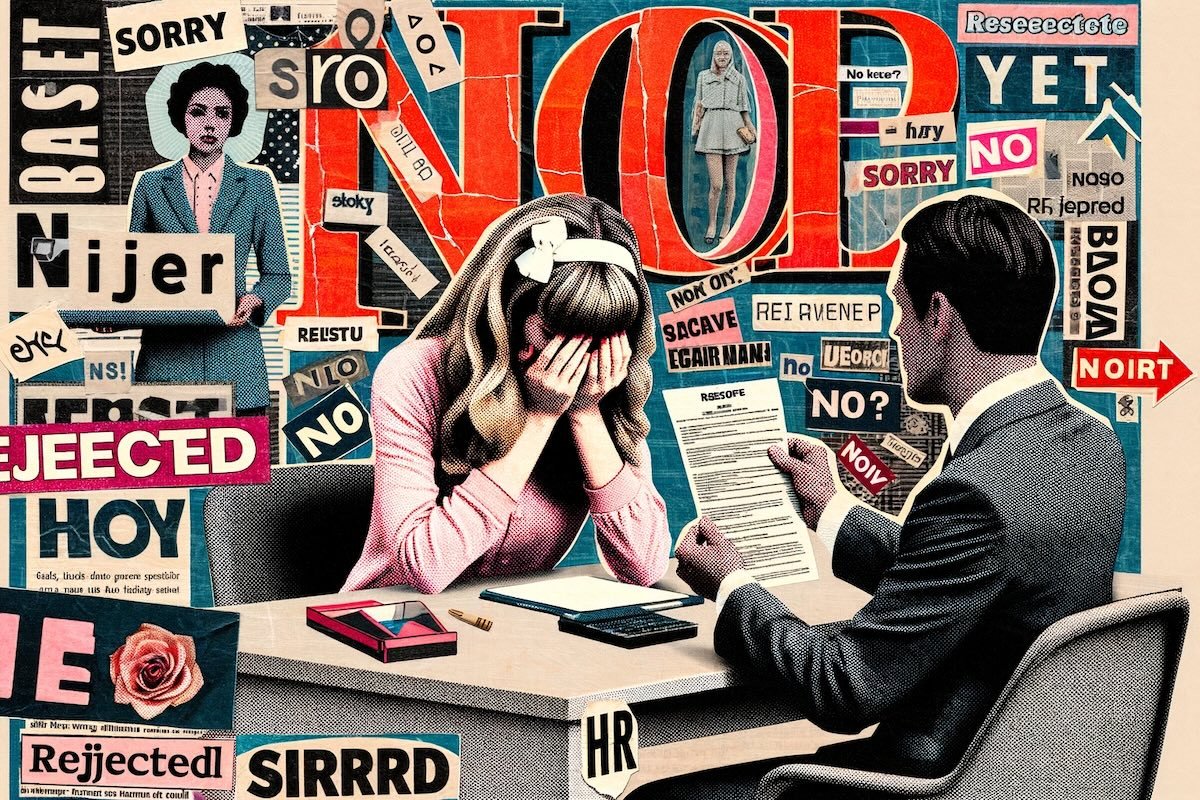What are your biggest strengths?
While we think it's pretty impressive that you can deadlift 150 pounds, that's not what we're asking. (Sidenote: we're not even sure what deadlifting is, anyway.)
Put away your
impostor syndrome, your urge to downplay your achievements, and go full
brag on this one. Let's talk about your strengths. Be ready to blow your interviewer away with your answer.
Table of Contents
How to Answer "What Are Your Strengths?"
For starters, this is an opportunity to brag about yourself and
sell your skills, which might seem simple—of course, you can brag about yourself, right?—but the reality is that many people stumble most when they are, in fact, trying to sell themselves and share their best traits.
The key lies not only in your
prep work and your own self-awareness but also in understanding why this question is being asked in the first place.
Once you understand what the interviewer is trying to learn and what matters most to them, you can craft a thoughtful answer that brags about you, your experience, and your skills in a way that leads the interview down a more interesting path—a path that sets you apart from the same rehearsed answers that most candidates give.
Why Are Interviewers Asking This Question?
By asking this question, the employer is trying to gauge whether you have the skills and experience for the job at hand. Remember that employers are hiring because they have a problem and need someone to solve it. This is your opportunity to show them that you are that person—and
problem-solving is what you can do.
If only you had a cheat sheet to determine exactly what they want in a candidate...
Psst, you do!
Use the job description to get clues as to what strengths they're looking for and then make sure you align your specific examples to what the company needs. If they are looking for creativity, then your goal is to discuss what creative strengths you have.
This will make you stand out among the competition—not just because you’ll show you have the skills and experience, but because you’re also a great fit for the team.
Here are some tips on how to answer this job interview question in an impressive way.
How to Talk About Your Strengths
When talking about your strengths, it’s best to have an overall formula you follow to answer the question so it seems organic yet impressive. Here are four tips to follow.
Brainstorm
Before your interview, brainstorm 10-15 strengths.
Consider the soft skills (like
communication or
management skills), hard skills (like data visualization or research writing skills), analytical skills, leadership skills, organizational skills, and technical skills that you have.
Think about when you've been praised for your work or the times you’ve been pulled into a project. Where did they want your advice? Could it be
your overall people skills? Is it your special skills in delegating?
If you’re still struggling to create a list of your skills and strengths, reach out to your coworkers, managers, and peers and ask them what they think your strengths are. Your biggest strengths might be things you commonly overlook like your flexibility, teamwork, or patience
Relate Your Strengths to the Job and Company
Once you have a list of strengths, you'll need to narrow down this list and focus on the transferable skills and strengths that most closely align with the job and company you’re interviewing for.
As we mentioned earlier,
use the job description as a guide. What soft, hard, and technical skills are listed in the job description? Circle them. Now, compare the words you’ve circled to your list of personal strengths.
Wherever you can get the two lists to overlap is a strength you want to focus on.
For example, if the job description mentions “collaborative communication among teams to complete projects” and you’ve listed “communication skills” on your initial list of strengths, then you’ll want to focus on expanding your
communication skills, which leads to our next step.
Share the Results
When answering your strengths question, have a story prepared for why you consider it an important strength, how it has helped you work through problems in the past, and, specifically, how you can apply it to the job at hand. You want to show you're a good fit.
Going back to our past example, this is where you’ll spend time prior to your interview thinking about a time when your excellent communication skills really helped at work.
And if you can explain how your communication skills enabled the completion of projects—even better! We know this job has projects that require input from various teams, and the struggle must lie in the communication among them.
To be even more impressive, share the results you've seen from using this strength in your current or previous position. For example, did a project finish under budget because your great communication skills kept the project on schedule?
Give a Concrete Example
One mistake is sharing your strengths as a story that never ends. Be concise with your answer. Leave room for you and the interviewer to discuss other things. You want to give them the chance to ask you follow-up questions about your expertise.
One of the best reasons for asking about strengths in an interview is because it can lead to a variety of follow-up questions. These will hopefully let you show that you're fit for the role in even more detail.
Here’s an example of a concise answer that uses storytelling:
“My greatest strengths are my communication skills and my ability to take initiative. While I was working as a Project Manager at Company Z, we were struggling to complete the rollout of our online application. One of the biggest issues was that we were spending too much time in meetings, which left little time to actually do the work of getting the app launched.
I knew that if we could remove some of these meetings and create a better workflow for completing tasks, it would help get this app launched.
I set up the entire workflow online using a project management tool with assignments, due dates, and creative assets. I also made sure that all messaging was done through the workflow so everyone had insight into the next steps.
Next, each Monday and Friday, I sent out status emails with the top three priorities and the owners of those tasks. This really helped remove bottlenecking and allowed the project to move along in a more cohesive way.
In the end, the app launched eight weeks later. We’ve already doubled our bookings since our customers can now book via phone or app.”
Pro Tip: In the end, your strengths are more about quality than quantity. An interviewer isn’t going to remember a rambling list of strengths—but they will remember a great story with you as the hero.
By preparing ahead of time to brainstorm a list and practice your storytelling, you’ll have a solid strategy in place for connecting the dots between your skills and the specific job.
Sample Answers for "What Are Your Strengths?"
Let’s practice some more interview answer examples with stories using a variety of
soft skill strengths. These can often be the most challenging to share with concrete examples, and saying you're a "perfectionist" will not make you look like the ideal candidate.
How to Show Critical Thinking in Your Answer
“One of my key strengths is critical thinking. In my last role as a digital marketer, we were struggling with a high churn rate of subscribers. In order to save us time and money, I created an exit survey for customers and then took that data and organized it.
It turns out that people were canceling most of the time because they couldn’t control how often they got shipments. I shared this data with the product team, and they were able to offer three ways to change the delivery timelines. This cut our churn rate in half.”
How to Show You're Detail-Oriented in Your Answer
“One of my greatest strengths is
being detail-oriented. With my previous employer, I was part of a small team that worked completely virtually. This meant that it was extremely important that I stayed organized with my projects. I used a variety of project management tools that allowed my team and me to easily collaborate so that we didn’t mix up shared documents.
I also believe that focusing on the most important project helps with procrastination. To make sure I’m focused on what matters, I make sure to listen and to get advice often. Being able to listen, take notes, and ask questions helps me better understand my tasks so I can stay focused on them.”
How to Show You're a Great Communicator in Your Answer
“One of my greatest strengths is communication. In my last role, I first started by asking each of my colleagues their preferred method of communication. I also made sure to send meeting agendas 24 hours in advance and recaps soon after the meeting ended.
This helped us cut back on the time we spent in meetings. When I worked 1:1 with a coworker, I could deliver the information in the way that was the fastest for them to receive it. In addition to building team morale, we finished projects on time and with less stress."
How to Show You Have a Growth Mindset
“One of my greatest strengths is my
growth mindset and my ability to adapt as needed. When Covid happened, my role quickly shifted, and I needed to focus less on paid social media marketing and more on organic marketing.
I quickly enrolled in an online SEO course and launched a blog for the company. Along the way, I asked for feedback from my manager on how the organic marketing was converting and tweaked the strategy as needed.
Now the company blog brings in 20% of all website traffic and has a 4% conversion rate.”
How to Show You're a Great Collaborator
“One of my greatest strengths is
collaboration. In my last job as a recruiting coordinator focused on the onboarding process of new candidates, I noticed there wasn’t a process in place for welcoming a new employee and making sure they had all of their HR documents completed.
I knew if I could create an organized onboarding process, it would make a better first impression for the new employee. It would also save time for HR, hiring managers, and recruiters since the employee could spend more time learning how to do the new job vs. navigating paperwork.
Working with each team, I created an HR online learning workshop. Not only did each candidate get the same information, but we could track their progress and collect their paperwork through it.”
Examples of Strengths
Still stumped? We don't blame you. Here are a few examples of strengths you can explore. Do any of these fit you? How would you explain any of these as strengths or weaknesses in your next interview? Apply the three-step process above—and you're ready to go!
Creative Strengths
- Curiosity
- Design-mindedness
- Creative thinking
- Fluency
- Design skills
- Adaptability
Leadership Strengths
- Active listening
- Empathy
- Compassion
- Influence
- Give effective feedback
- Dependable
- Good communication
- Leadership skills
- Public speaking
Analytical Strengths
- Growth mindset
- Great at collaboration
- Research
- Data analysis
- Decisive
- Evaluative
- Computer skills
Soft Skill Strengths
- Interpersonal skills
- Strong communication skills
- Time management
- Emotional intelligence
- Listening
- Compassion











